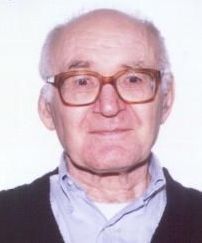Daniel Comboni
Comboni Missionaries
Institutional area
Other links
Newsletter
In Pace Christi
Andreon Giuseppe
Fr. Giuseppe Andreon, was already a deacon and student of theology at the diocesan seminary of Pordenone when, in 1957, he joined the Comboni novitiate in Pordenone. He was ordained priest in 1959 and sent to Sunningdale, England, to study English.
In 1960, he left for the missions of Uganda. He remained there for twenty four years, working in the missions of Patongo, Anaka, Opit, Pajule and Palabek. After doing the Renewal Course in Rome, which ended in May, 1968, he returned to Uganda, working at Pajule, Patongo and Pabo. In 1976, while at Pabo, he wrote to the superiors informing them that his name was among the list of those rejected by the Ministry of Home Affairs. Fortunately, his situation worked our well.
On the tenth anniversary of his ordination, he wrote to his confreres: “Every evening, taking stock, I have to accept my deficiencies, my mistakes, my duties only half performed and much tiredness. A priest for ten years! I am happy with this but I can assure you that, when I was 24 and made the generous offering of my life to God to serve my brothers, I was very far from knowing what I was actually undertaking. How difficult it is to live for the others without expecting anything in return, without regrets and without tiring. ... And what a lot of things I, too, have discovered during these ten years. The first night I slept in the forest, the termites devoured my sandals and I was ashamed to be barefoot like my people. Just a stone innocently thrown against a tree was enough to send this young missionary into headlong flight: bees are not disturbed with impunity! The footpaths of the forest, designed by the bare feet of my people, are to me a skilful embroidery: pure African designer products. Lying on the grass with his feet under the motorcycle, this priest counsels himself: “Bepi, take it easy on the corners ... And now that I have been living in the forest for some years: I am in love with the life in the wilderness that every missionary must follow. My parish has seen an enormous increase in numbers of Christians for some years. It was born less than twenty years ago but now it has more than 40.000 inhabitants, of which about half are Catholics, spread throughout an area bigger than the Province of Venice”.
In 1976, after a few months spent at Pesaro (Italy) as bursar, Fr. Giuseppe returned to Uganda, this time to Morulem and Kaabong, in the Karamoja desert, the poorest and least developed part of north-east Uganda. At Christmas, 1980, he wrote to friends and benefactors: “Thanks to your help and that of various international agencies that are always on the increase, this Christmas will be less sorrowful than it might have been for our 380.000 Karimojong. The situation of my 85.000 Dodoz (the northern Karimojong, those most affected by the famine) has much improved. The number of those dying of hunger has come down from about a hundred a day during the worst times, to only about ten. They lost the highest number of people because, apart from the fact that they had had no harvest, all their stock of cattle had been stolen. They have always lived off their cattle, being semi-nomadic pastors. Finding themselves without cattle for the first time ever, they began to think of alternatives. Our chapels are full of people seeking Baptism”.
In 1984, his superiors sent him to Kenya where, for fifteen years, he worked in the missions of Mogotio, Katilu, Kasikeu, Kerio Valley and again at Mogotio. In 1999, for health reasons, he was obliged to ‘rent a room’, as he put it, at the Verona centre for the Sick and Elderly. There, unlike Uganda and Kenya where he would travel long distances on the rough and dusty roads by motorbike, he could only get around in a wheelchair. This was due to an accident a fall from a tree from which he never fully recovered.
Fr. Giuseppe died in Verona on 29 October, 2013.
Da Mccj Bulletin n. 258 suppl. In Memoriam, gennaio 2014, pp. 119-125.

